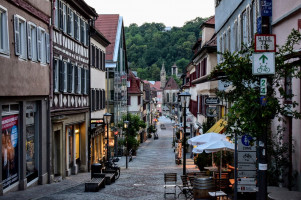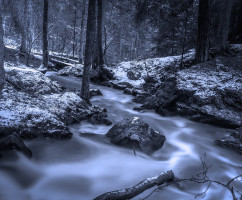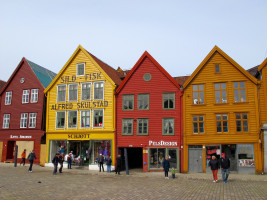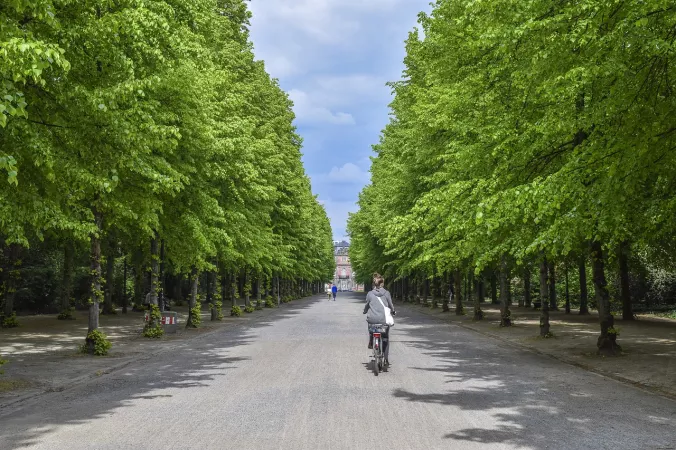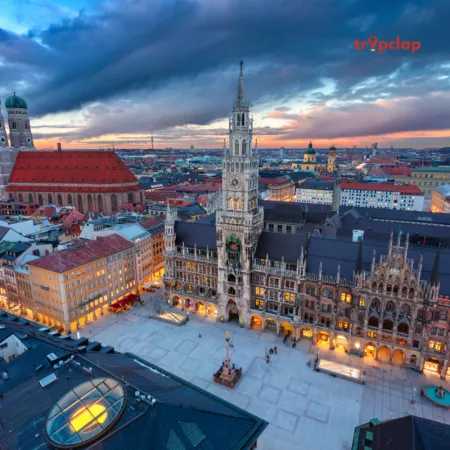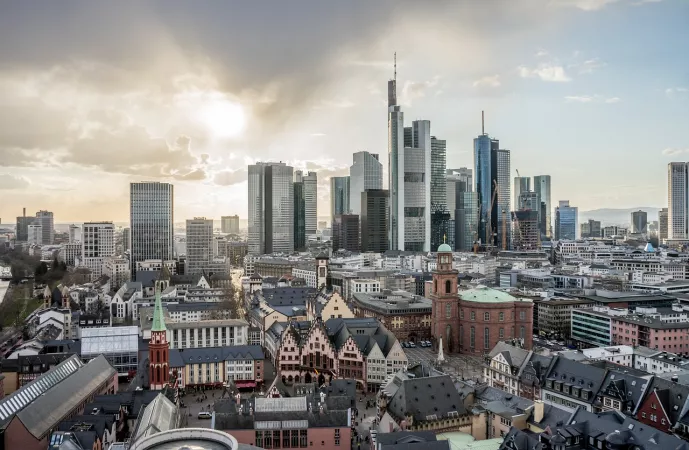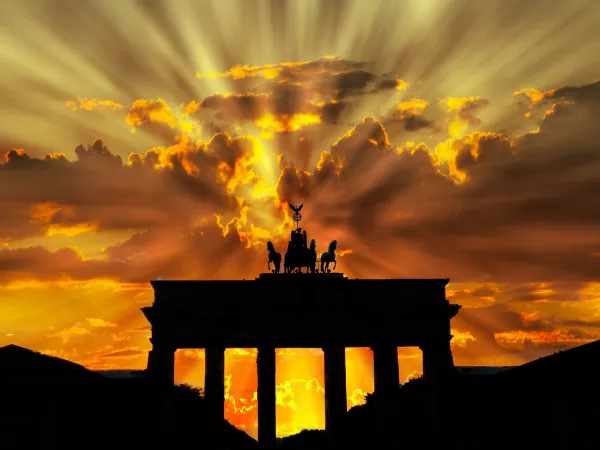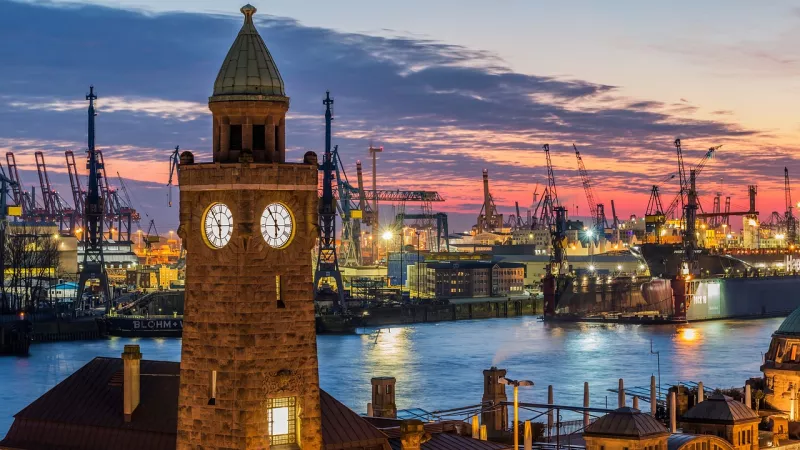
Hamburg Travel Guide
Located in northern Germany, Hamburg is a vibrant city known for its rich history, picturesque waterfront, and lively cultural scene. As the country's second-largest city, Hamburg boasts a unique blend of old-world charm and modern sophistication. The city is famous for its bustling port, historic architecture, and world-class museums, making it a popular destination for travelers from around the globe.Top Attractions in Hamburg
- Miniatur Wunderland
- Speicherstadt
- Elbphilharmonie
- St. Michael's Church
- Hamburg City Hall
Hamburg is Famous for
Its bustling port and historic architecture.Top Attractions in Hamburg
- Explore the historic Speicherstadt district
- Take a boat tour of the Hamburg harbor
- Visit the impressive Elbphilharmonie concert hall
- Enjoy a leisurely stroll along the Alster Lakes
- Experience the vibrant nightlife of the Reeperbahn district
What's Great about Travelling to Hamburg?
- Rich history and culture - Vibrant waterfront - Lively cultural scene - Great shopping and dining optionsWhat's Not So Great about Travelling to Hamburg?
- Can be crowded, especially during peak tourist season - Weather can be unpredictable, with frequent rain showersTravel Tips for Hamburg
- Check visa requirements before your trip
- Use public transportation to navigate the city easily
- Be cautious of pickpockets in crowded tourist areas
Important Hamburg trip information
- Ideal Duration: A week to fully explore the city and its attractions
- Best Time to Visit: Summer months for pleasant weather
- Nearby Airports and Railway Stations: Hamburg Airport and Hauptbahnhof (Central Station)
Per Person
90,795
*EXCLUDING APPLICABLE TAXES 5.0 Ratings
( 393 Reviews )
( 393 Reviews )
Per Person
1,67,178
*EXCLUDING APPLICABLE TAXES 5.0 Ratings
( 393 Reviews )
( 393 Reviews )
Per Person
1,58,051
*EXCLUDING APPLICABLE TAXES 5.0 Ratings
( 393 Reviews )
( 393 Reviews )
Per Person
1,15,776
*EXCLUDING APPLICABLE TAXES 5.0 Ratings
( 393 Reviews )
( 393 Reviews )
Per Person
1,70,061
*EXCLUDING APPLICABLE TAXES 5.0 Ratings
( 393 Reviews )
( 393 Reviews )
Per Person
1,27,786
*EXCLUDING APPLICABLE TAXES 5.0 Ratings
( 393 Reviews )
( 393 Reviews )
FAQ's on Hamburg
Q1: What is the best time to visit Hamburg?
The best time to visit Hamburg is during the summer months from May to September when the weather is mild and pleasant. This period allows for outdoor activities, festivals, and sightseeing without extreme temperatures. The city is bustling with events like the Hamburger Dom funfair and the Alstervergnügen festival. However, Hamburg's maritime climate means it can be rainy at any time of year, so be prepared for some showers even in the summer.
Q2: Do I need a visa to travel to Hamburg?
Travelers from the EU, EEA, and Switzerland do not need a visa to visit Hamburg for stays up to 90 days. However, visitors from many other countries, including the US, Canada, Australia, and many Asian and African countries, will need a Schengen visa. It's essential to check the specific visa requirements based on your nationality and the purpose of your visit before traveling.
Q3: What are the must-visit attractions in Hamburg?
Hamburg has a wealth of attractions to explore, including the iconic Miniatur Wunderland, the historic Speicherstadt warehouse district, the stunning Elbphilharmonie concert hall, and the vibrant Reeperbahn entertainment district. Don't miss the picturesque Alster Lake, the impressive Rathaus (City Hall), and the lively Fish Market on Sunday mornings. For a maritime experience, visit the Port of Hamburg and take a boat tour along the Elbe River.
Q4: Is Hamburg a safe place to travel?
Hamburg is generally a safe city for travelers. Like any major city, it's essential to remain vigilant, especially in crowded tourist areas and public transport. Avoid walking alone at night in unfamiliar neighborhoods and be cautious of pickpockets in busy areas. As a port city, Hamburg is known for its cosmopolitan atmosphere and diverse population, offering a welcoming environment for visitors.
Q5: What is the local currency in Hamburg and can I use credit cards?
The local currency in Hamburg is the Euro (€). Credit cards are widely accepted in hotels, restaurants, shops, and tourist attractions. ATMs are prevalent throughout the city, making it easy to withdraw cash if needed. However, it's always advisable to carry some cash for smaller purchases and in case you encounter establishments that do not accept cards.
Q6: What is the local cuisine like in Hamburg?
Hamburg offers a diverse culinary scene with a focus on fresh seafood due to its maritime location. Don't miss trying the famous Fischbrötchen (fish sandwich) at the Fischmarkt. Sample traditional dishes like Labskaus (a hearty stew) and Pannfisch (pan-fried fish) in local restaurants. For a sweet treat, indulge in Franzbrötchen (cinnamon pastry) or Rote Grütze (berry compote). Vegetarians and vegans will also find plenty of options in the city's trendy cafes and eateries.
Q7: What transportation options are available in Hamburg?
Hamburg has an efficient public transportation system, including buses, trains, and ferries operated by HVV. The city is also bike-friendly, with numerous bike lanes and rental services available for exploring the city on two wheels. Taxis are readily available but can be expensive compared to public transport. Renting a car is an option for those looking to explore the surrounding areas outside the city center.
Q8: Are there any cultural norms or etiquette I should be aware of when visiting Hamburg?
When visiting Hamburg, it's essential to greet people with a handshake and maintain eye contact during conversations as a sign of respect. Tipping is customary in restaurants and for services like taxi rides, with 5-10% of the total bill being a standard practice. Germans value punctuality, so be on time for appointments and reservations. When dining out, it's polite to wait until everyone has been served before starting your meal. Respect quiet hours in residential areas and public spaces, especially at night, to avoid disturbing locals.
Q9: I am a travel agent. How can I buy travel leads of Hamburg?
Register yourself as a travel agent at agents.tripclap.com and then you can buy travel leads to Hamburg once your account is approved. For more details contact our support team at +91-8069186564 or support@tripclap.com
